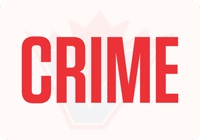TREATMENT and recovery providers who have been financially challenged by the COVID-19 pandemic are benefiting from grants to ensure ongoing support for people struggling with addictions throughout B.C., says the Province.
Fifty-three eligible grant applications came in and all were awarded, totalling just over $2 million. The grants support existing bed-based treatment and recovery services provincewide. Individual grants ranged from $25,000 to $45,000 based on the number of qualifying beds within eligible services.
“The overlapping overdose and COVID-19 emergencies have created unparalleled challenges for British Columbians, especially those with substance use disorders,” said Sheila Malcolmson, Minister of Mental Health and Addictions, said on Thursday. “We are listening to the recovery community and working to ensure mental health and addictions services continue being there for people throughout the pandemic and after.”
While the majority of bed-based treatment and recovery services have remained open during the pandemic, modified operating practices required to meet public health requirements – such as physical distancing – created financial pressures for operators. These grants are helping offset the pressures and enabling ongoing access to services, which is a critical part of B.C.’s overdose response.
Grants were awarded to service providers throughout the province in every health authority, with 25 in Fraser Health, 11 in Island Health, eight in Vancouver Coastal Health, seven in Interior Health and two in Northern Health. Eligible applicants were required to be licensed and/or registered under the Community Care and Assisted Living Act.
Strengthening service capacity throughout COVID-19 is essential to B.C.’s overdose response, as the pandemic has had devastating effects on people living with substance use disorders. A dramatic increase in the toxicity of unregulated street drugs, on top of increased isolation and mental health challenges, means it is more important than ever to connect people seeking help to treatment and recovery services.
Treatment and recovery beds are an important part of the substance use continuum of care available for people in British Columbia. They provide supportive living environments where people can focus on their recovery journey.
Improving treatment and recovery services is an integral part of A Pathway to Hope, B.C.’s roadmap for building the comprehensive system of mental health and addictions care British Columbians deserve.
B.C. has taken swift action to enhance its overdose response to two public health emergencies – COVID-19 and the overdose crisis:
* New guidance for prescribers was implemented to increase access to safer pharmaceutical alternatives during the pandemic.
* The Lifeguard app was launched to help protect people using alone. The app has been used nearly 11,000 times with 11 lifesaving paramedic responses.
* Overdose prevention and supervised consumption services were declared as essential services, and sites were supported to stay open safely.
* Access to 24-7 support was increased, with six new assertive community treatment (ACT) teams to care for people and help reduce street disorder.
* The number of youth treatment beds will be doubled provincewide through a $36-million investment.
* New treatment and recovery beds for adults throughout B.C. are being added through a $13.5-million investment.
* Access to Naloxone kits were expanded to 1,795 locations throughout the province. About 75,800 naloxone kits have been used to reverse overdoses since August 2012.










